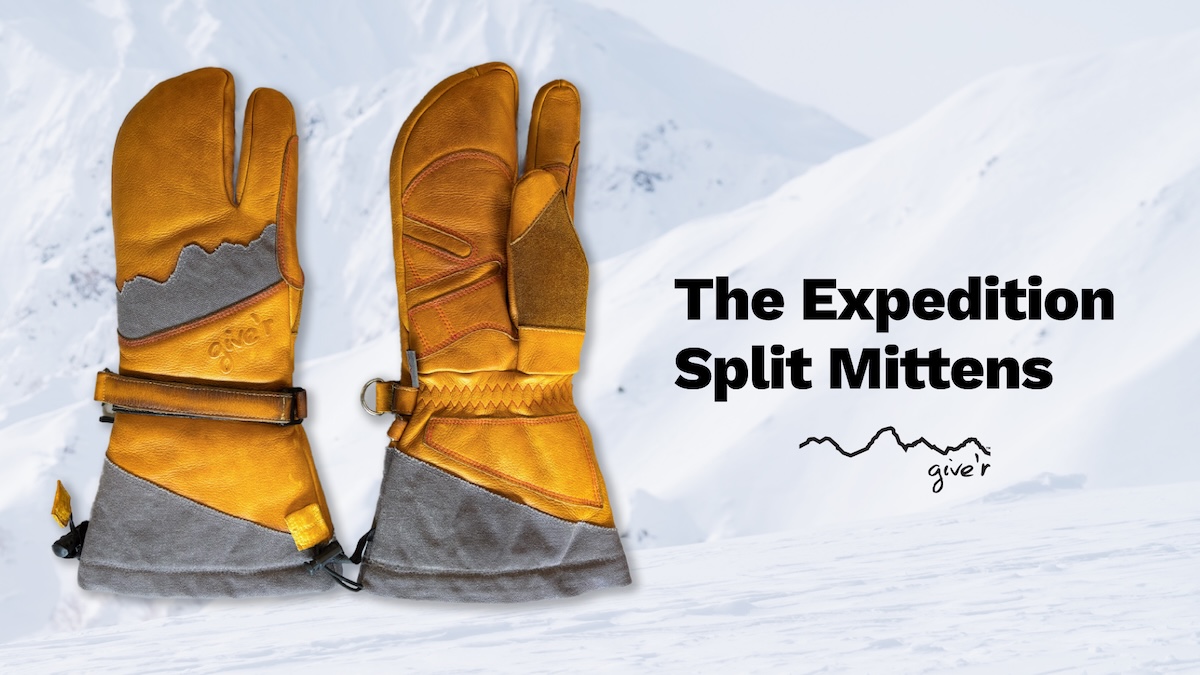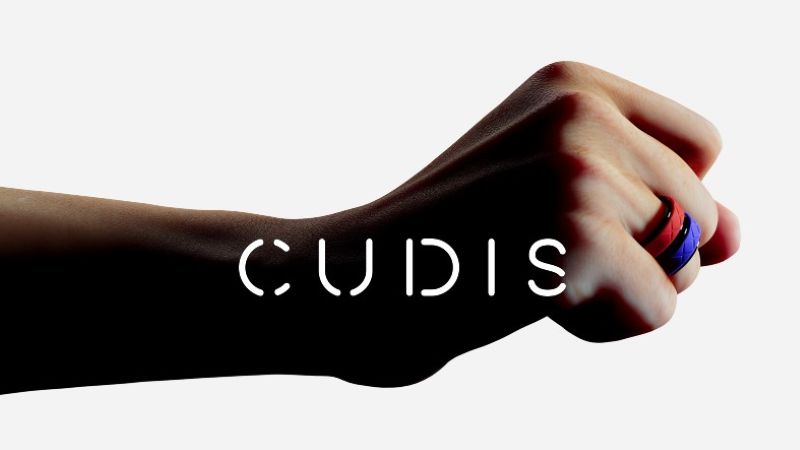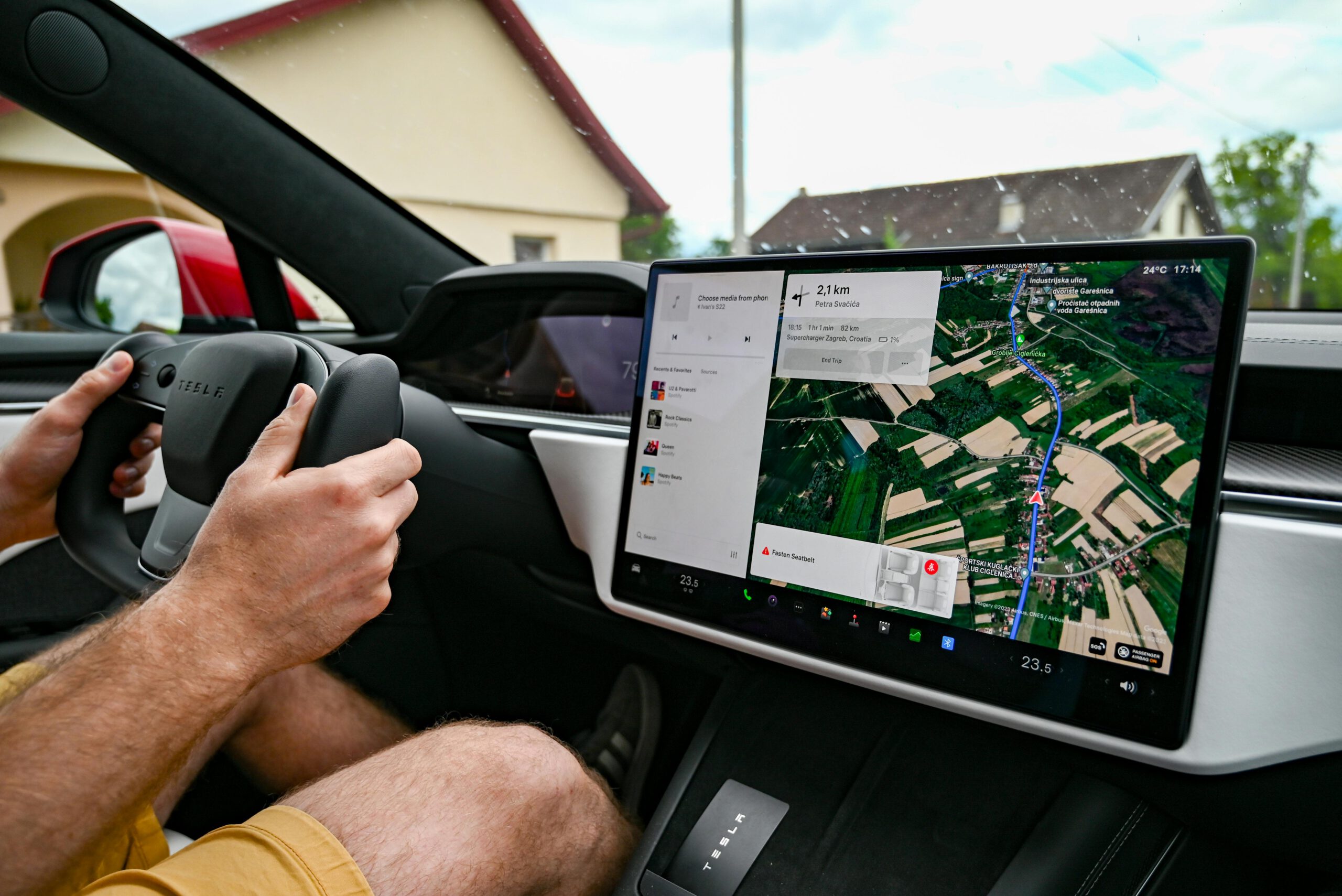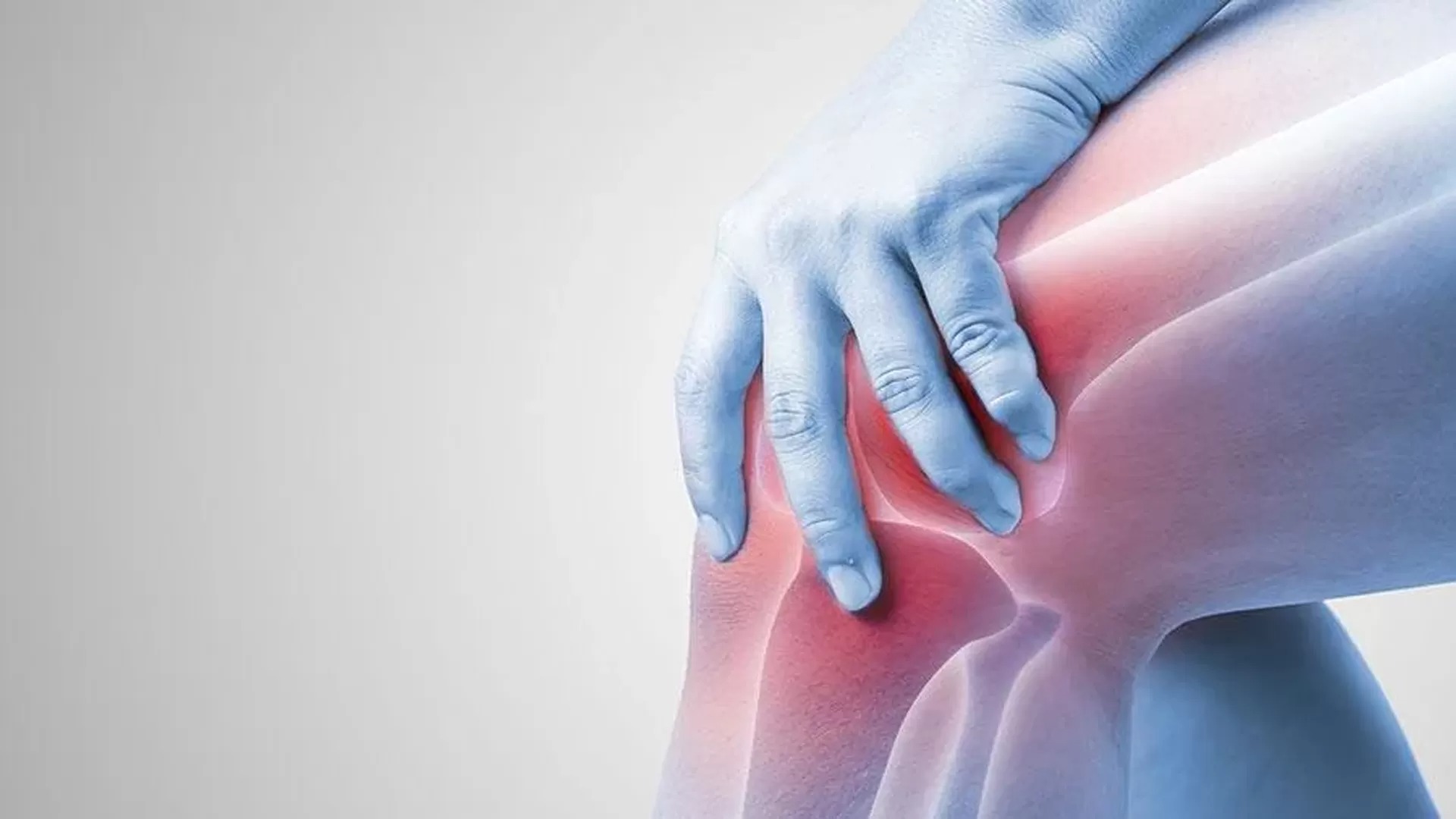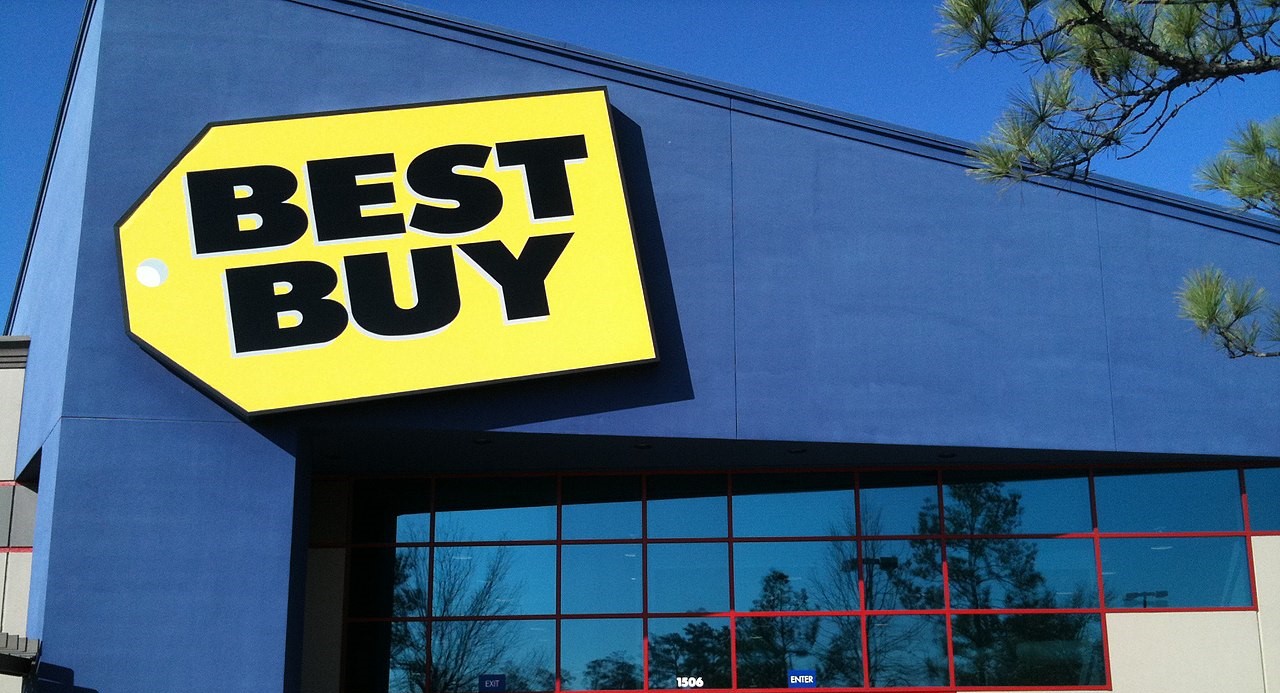Give-R founder Bubba didn’t set out to build a glove company. He started by wood-burning logos onto leather gloves from Ace Hardware and baking them in the oven with beeswax.
That scrappy beginning in 2016 has led to the Jackson, Wyoming company’s fourth Kickstarter campaign—this time for expedition split mittens designed to handle the worst winter conditions.
“I always thought the split mitten design was a novelty,” Bubba told me during a call from his workshop near Grand Teton National Park. “Yet after testing over the last couple of winters, having that pointer finger isolated makes a huge difference.”
From Hardware Store to Kickstarter
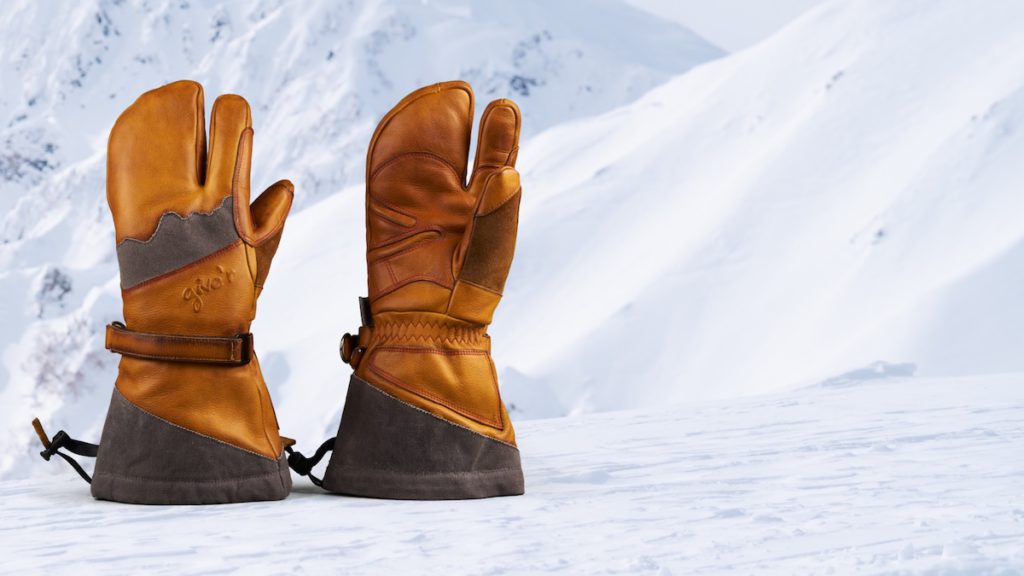
The Give-R story reads like the platonic ideal of a Kickstarter origin tale. Bubba started making hats for buddies on a kayaking trip in Canada. The hats featured “giver”—local slang for “give your all” or “get after it.” People asked where to buy them.
He and his team added t-shirts. Then came the hardware store gloves.
“We literally went to Ace Hardware and bought a wood burner,” Bubba said. “We bought four or five different pairs, just playing around with branding, baking in the oven, coating with wax.”
Friends stopped by. They wanted to know the price. The first pairs sold for $30—barely above the $20 Bubba paid for them.
But the gloves moved. For every hat or t-shirt sold, they moved 50 pairs of gloves. That first holiday season, 200 pairs went out the door. Customers wanted names and initials branded into the leather.
They also wanted something tougher.
Proven Track Record
Give-R’s first Kickstarter campaign in 2016 for their four-season gloves funded within six hours. The campaign raised over $224,000—nearly nine times the $25,000 goal. Outside Magazine called them ideal for “frigid resort ski days” while being “breathable enough for long backcountry missions.”
Since then, the company has successfully funded two additional campaigns. Some customers from that original 2016 campaign still use their gloves today.
Two Years in Development
The new expedition split mittens represent Give-R’s most robust cold-weather gear yet. Bubba combined waxed canvas—the material from Western films and jackets—with cowhide leather. The split design isolates the pointer finger while keeping the other three fingers together for warmth.
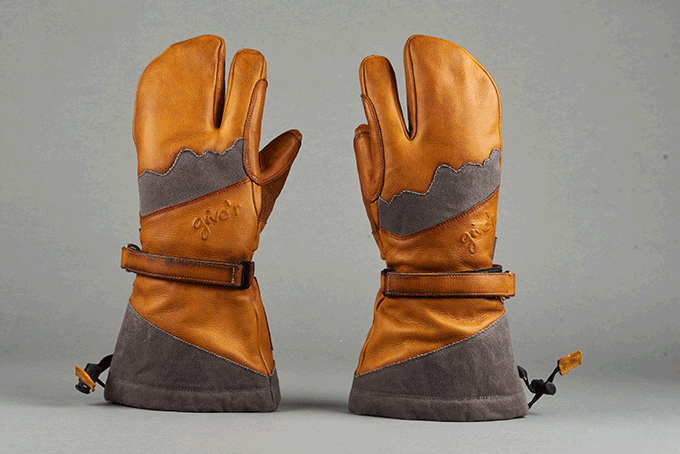
“The vision I had was like, ‘All right, you’ve got wax canvas, which is timeless, plus cowhide leather,’” Bubba explained. “I think there’s a way to do this that is different and more rugged than a lot of products out there.”
Living in Jackson gives Bubba access to serious field testers. Friends who snowmobile 80 days a year. Ski guides. People running ATVs thousands of miles across the West. He Frankensteined what worked from their gear and ditched what didn’t.
Two years of iteration followed—the kind of development timeline that mirrors how serious outdoor gear gets tested.
“Until we get some sort of breakthrough or ‘boom wow’ that really solves something, we don’t launch it,” he said.
The Long Haul Strategy
Bubba has also worked his day job at Jackson Airport for nearly 12 years, handling bags and de-icing equipment. He knows what breaks and what lasts.
“You can buy a glove at the gas station that’s going to last you two weeks,” he said. “But in handling thousands of bags, you get what you pay for.”
The company’s approach cuts against fast fashion. Some customers from the 2016 Kickstarter still use their four-season gloves. That creates an interesting business problem—if your product doesn’t break, people don’t need replacements.
Bubba isn’t concerned.
“We appreciate that a reputation and our strategy is that of the long haul, not just churning through and making something to fail.”
It’s the same philosophy that drives the best winter camping gear—build it right the first time, even if it means customers buy less often.
The Final Stretch
The expedition split mittens campaign closes Thursday, November 6. New backers can lock in the mittens for $129—$50 off the planned $179 MSRP. Delivery is set for January 2026.
Give-R has funded three previous campaigns on the platform, using each one to gather feedback and refine the next product.
It’s a long way from wood-burning logos in a workshop. But the approach hasn’t changed much—test it in the Tetons, listen to the people who use it hardest, and only launch when it’s ready.


